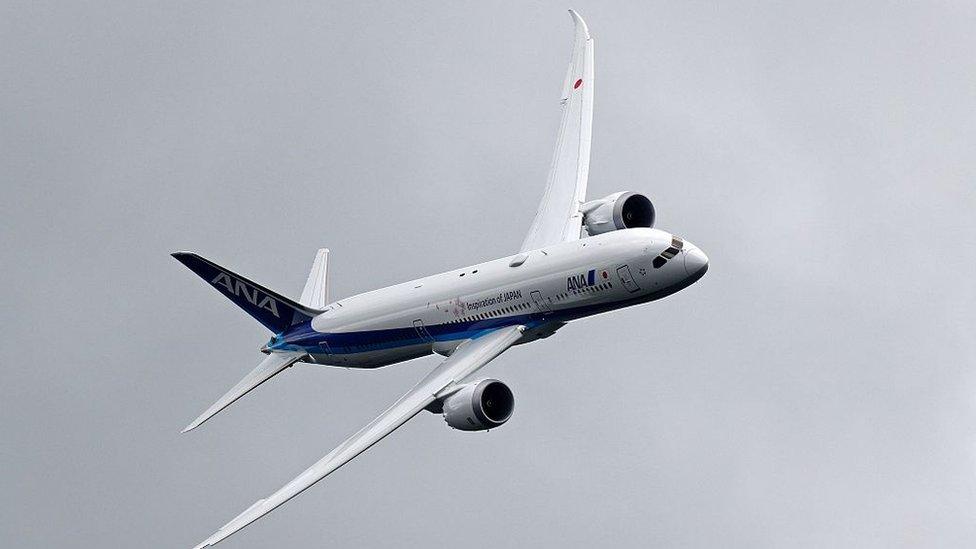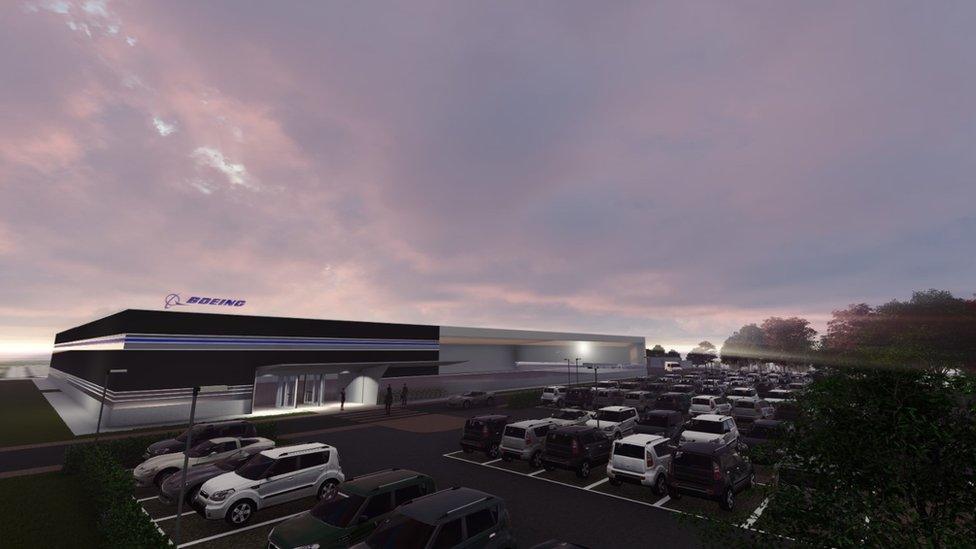This is not the end of the Bombardier row
- Published
- comments

Boeing has over come early teething problems with its 787 Dreamliner
In the latest clash in the heavyweight aerospace division it is round one to Boeing.
The US Commerce Department's ruling that Bombardier sold planes below the cost of production is a blow to the Canadian company's hopes for its C-Series plane and casts a shadow over the future of thousands of jobs at its Belfast factory where the wings are made.
In reality this contest is a weight mismatch. Boeing is booming.
Its 787 Dreamliner has overcome early teething problems, it's making tons of cash churning out its older 737 model for a plane hungry airline industry, it recently won a ruling against its old nemesis Airbus at the World Trade Organisation and has the US president cheering it on.
Bombardier on the other hand is struggling to make serious inroads into the commercial single aisle aircraft market.
The company nearly went bust in 2015 and needed state support.
Widespread sympathy
The deal with Delta to supply up to 125 planes was the largest order yet for its big hope, the C-Series, but an order only made possible, say Boeing, by absurdly low pricing made possible by Canadian and UK government subsidies.
While it is true that Bombardier has received billions from the government of Quebec and the state's pension fund, Boeing has received more, a lot more, from the US military, Nasa and the State of Washington over many decades.
Boeing would argue these were commercial arrangements, others would call them padded contracts amounting to subsidies.
It is widely acknowledged that Boeing's arch rival Airbus would not exist were it not for huge subsidies from European governments - but is also widely acknowledged by customers that the competition between the two has driven competitiveness and innovation.
That is why Bombardier's claim that Boeing is trying to strangle a new competitor at birth has received widespread sympathy in the financial press.
The Economist - that bastion of free market principles - called Boeing's case against Bombardier "a flight of hypocrisy".

Boeing has started building a new factory in Sheffield
But the people whose opinion matters are the US Department of Commerce, the US International Trade Commission and ultimately the World Trade Organization.
Boeing is currently winning the legal arguments with all three of these so no wonder it is feeling confident
It issued a polite but firm reminder to Theresa May that Boeing employs 16,500 people in its UK supply chain and last week broke ground on a new facility in Sheffield.
The Prime Minister may find it difficult to keep her new best friends in the DUP sweet while not offending such an important employer in the rest of the UK.
There are also defence questions to consider.
Canadian Prime Minister Justin Trudeau has threatened to cancel an order for Boeing-made Superhornets saying "we are not going to do business with a company that is suing us and trying to put our aerospace workers out of a job".
The UK has 50 Apache helicopters on order.
Will she be as bold as her Canadian counterpart or will she be criticised (as Trudeau has been) for putting the UK's defence capability at risk over a spat between private companies?
This is not the end of the Bombardier dispute.
A further ruling will be made in February next year so there is still time to decide which side the UK is on.
In a trade war with so many fronts that is not a straightforward exercise.